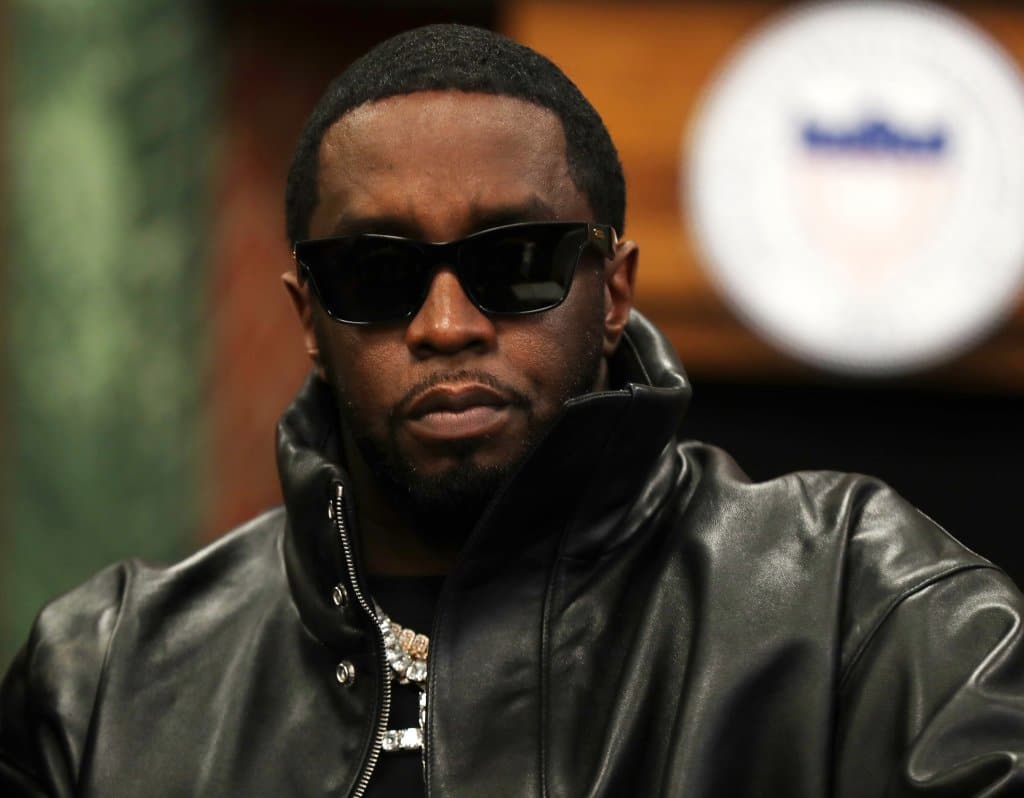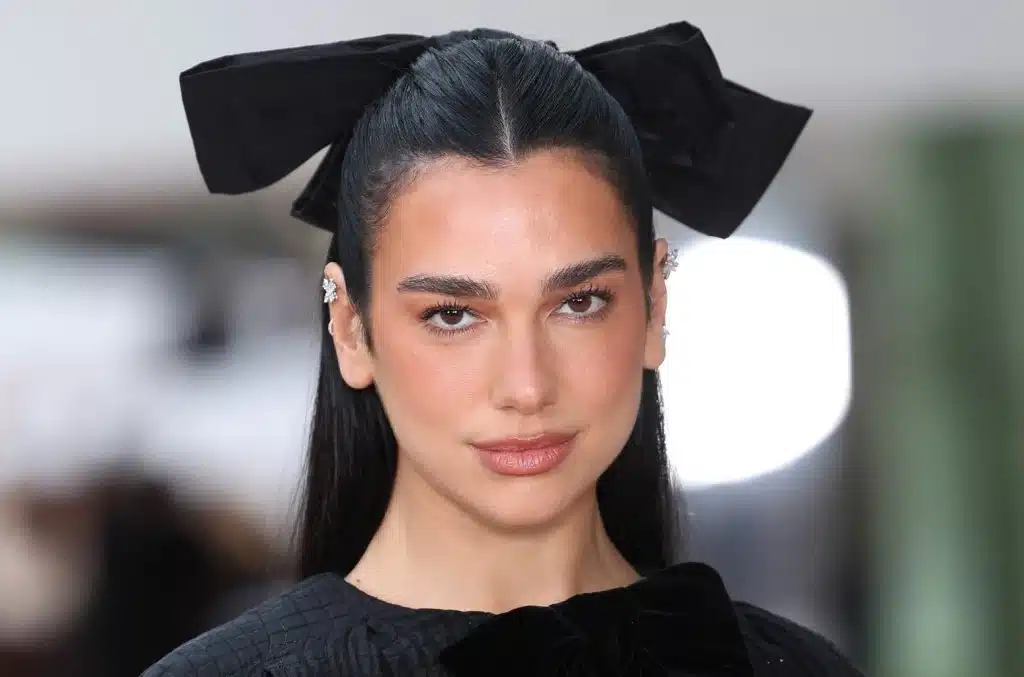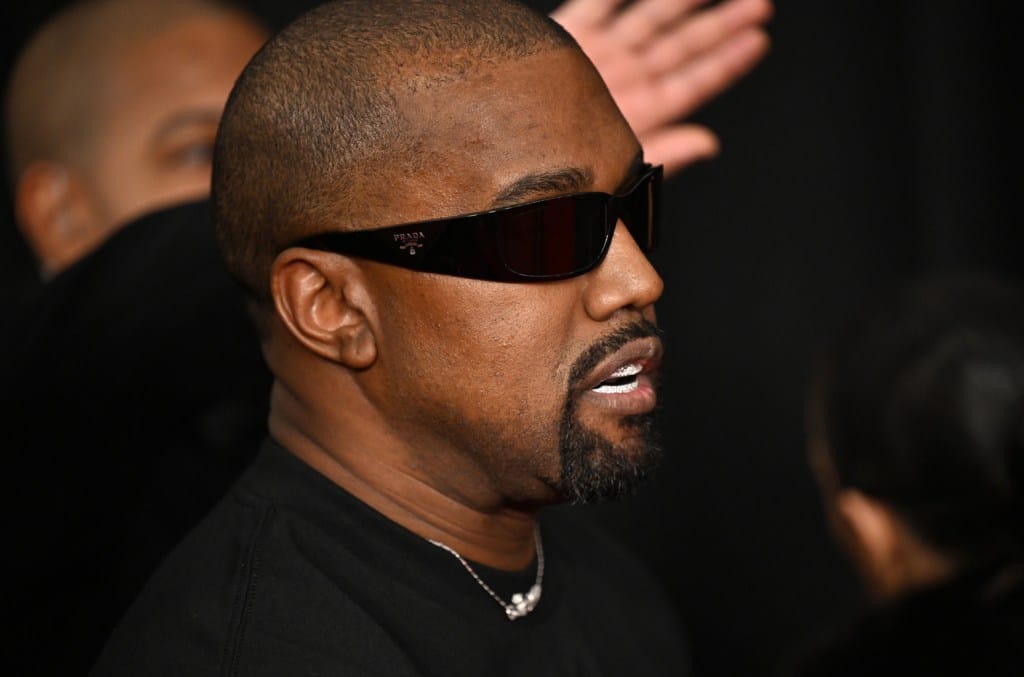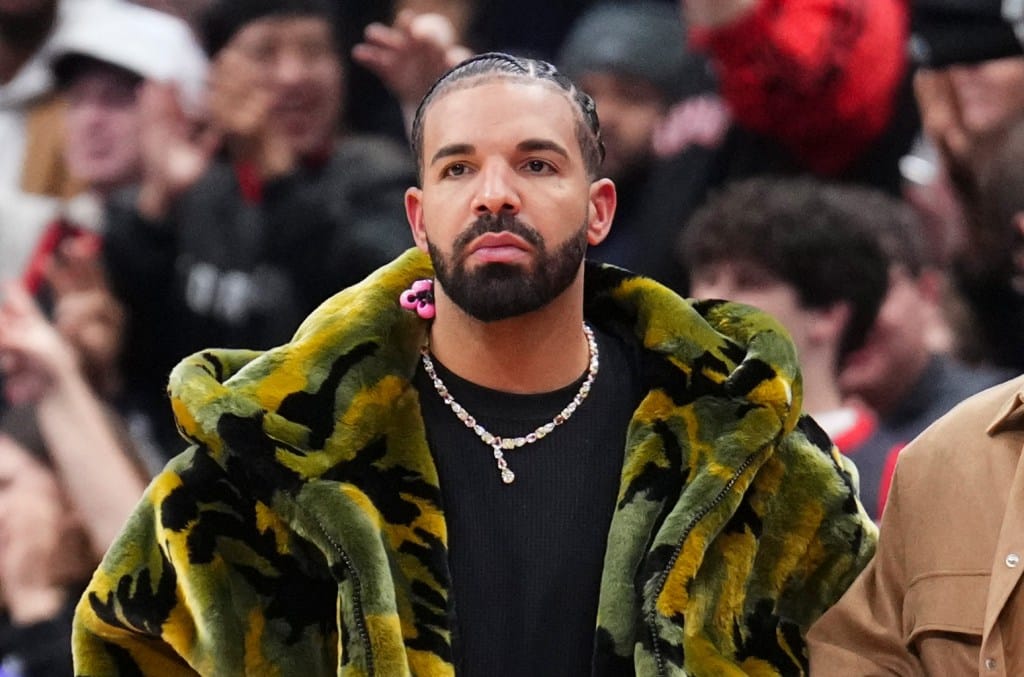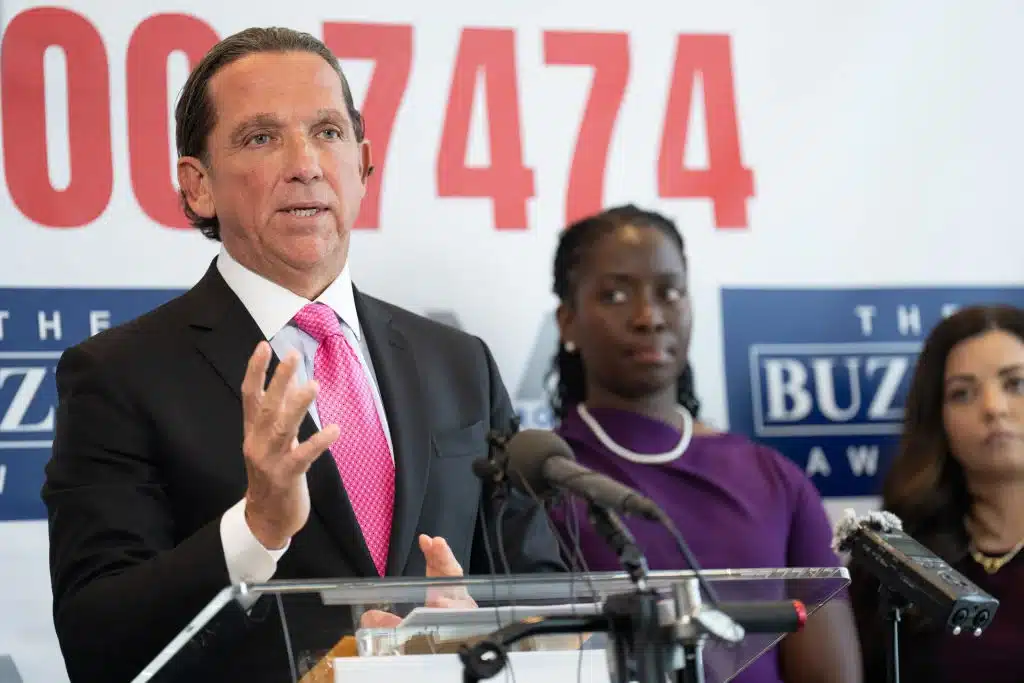Lawsuit
Page: 9
HipHopWired Featured Video
Source: unclegene / Getty
Sean “Diddy” Combs is once more being accused of heinous sex crimes after a man filed a lawsuit alleging human trafficking, sexual assault, and other crimes. Manzaro Joseph is claiming that Diddy forced him to wear a penis mask at a birthday party of King Combs in 2015, adding that he allegedly saw LeBron James, Beyoncé, and other celebrities. TMZ broke the report that Manzaro Joseph filed a lawsuit against Diddy, alleging that he was drugged and sent to the Bad Boy Records honcho’s Star Island commune and made to perform sex acts and be at the beck and call of guests. Named in Joseph’s lawsuit were Emilio and Gloria Estefan, who also reside on Star Island, along with Rick Ross owning a residence there as well. Joseph says that the Estefans tried to help him after witnessing what they thought was a medical episode. The filing goes on to say that a bath towel-wearing LeBron James, then a member of the Cleveland Cavaliers, urged the couple to handle the situation. Joseph, who apparently is white, said he then allegedly encountered Beyoncé, who was offended by his mask and wondered why he was at the party. Joseph then adds to claims that one of Diddy’s security people was allegedly ordered by his boss to parade Joseph around in sexually suggestive clothing and made to perform humiliating sex acts.This complaint demonstrates the depraved lengths plaintiffs will travel to garner headlines in pursuit of a payday. No sane person reading this complaint could credit this story. Mr. Combs looks forward to having his day in court where these lies – and the perverse motives of those who told them – will be revealed,” Diddy’s legal team told TMZ.
Also named in the filing were former porn star Adria English, Jacob “The Jeweler” Arabo, and alleged drug mule, Brendan Paul. The outlet was clear to note that Joseph is only suing Diddy, the Estefans, English, and Paul. The outlet also updated their story to share statements from the named individuals, all of whom are shooting down the wild claims.
—Photo: Getty
HipHopWired Featured Video
Source: Getty / General
A recently filed lawsuit alleges new bombshell claims against Hip-Hop mogul Sean “Diddy” Combs. According to TMZ, the Bad Boy founder is being sued by a male photographer who alleges that the embattled star forced him to perform oral sex by threatening his career.
In the lawsuit obtained by TMZ, the accuser is a photographer who claims Diddy invited him to join him in a trailer for an opportunity to advance his career. However, the unnamed accuser said that the Hip-Hop mogul began making sexual advances and unzipping his pants.
The allegations are disturbing, with the accuser alleging that Diddy told him “If you suck right I’ll make your career take off.”
The accuser, who identifies as a straight man, says that he complied.
He later said that Diddy allegedly told him to hold semen in his mouth “like a squirrel.”
The photographer said that the incident occurred in 2022 or 2023 and that it took place in Diddy’s trailer on the set of a commercial. He says that he did not have further contact with the mogul afterward.
He is suing for sexual battery and financial damages due to emotional and mental pain and trauma.
Diddy’s legal team sent a statement to TMZ writing, “No matter how many lawsuits are filed—especially by individuals who refuse to put their own names behind their claims—it won’t change the fact that Mr. Combs has never sexually assaulted or sex trafficked anyone—man or woman, adult or minor.”
They added, “We live in a world where anyone can file a lawsuit for any reason. Fortunately, a fair and impartial judicial process exists to find the truth, and Mr. Combs is confident he will prevail in court.”
Diddy has been held at the Metropolitan Detention Center in Brooklyn, New York, since he was arrested on Sept. 16, 2024. He is being held without bond.
A new podcast, Bad Rap, from ABC Audio was recently released detailing the mogul’s ongoing sexual abuse and sex trafficking charges.
https://twitter.com/abcaudio/status/1904530774453555277
Dua Lipa won a ruling Thursday (March 27) dismissing a copyright lawsuit claiming she copied her smash hit song “Levitating” from two different decades-old songs.
The case, filed in 2022 by songwriters L. Russell Brown and Sandy Linzer, accused Lipa of ripping off their 1979 song “Wiggle and Giggle All Night” and their 1980 song “Don Diablo.” The lawsuit was one of two high-profile copyright cases filed over “Levitating,” a massive hit that spent 77 weeks on the Billboard Hot 100.
In her decision, Judge Katherine Polk Failla ruled that Lipa’s song shared only generic elements with Brown and Linzer’s songs — the kind of basic musical building blocks that are not covered by federal copyright law and cannot be owned by any one songwriter.
Trending on Billboard
“The court finds that a musical style, defined by plaintiffs as ‘pop with a disco feel,’ and a musical function, defined by plaintiffs to include ‘entertainment and dancing,’ cannot possibly be protectable,” the judge wrote. “To hold otherwise would be to completely foreclose the further development of music in that genre or for that purpose.”
The judge said that some of the material Brown and Linzer claimed Lipa stole — like a “patter style” featuring rapid singing of one syllable per note — had been “used for centuries” and existed in operas by Mozart and operettas by Gilbert and Sullivan. The judge said another allegedly infringing element, a rapid tempo, was also “common” and had appeared identically in “Stayin’ Alive” by the Bee Gees.
“It is possible that a ‘layperson’ could listen to portions of plaintiffs’ and defendants’ songs and hear similarities,” the judge said. “But … the similarity between the works concerns only non-copyrightable elements of the plaintiffs’ work.”
In a statement to Billboard, an attorney for Brown and Linzer said they “respectfully disagree” with the decision and would file an appeal.
“This case has always been about standing up for the enduring value of original songwriting, and we continue to believe in the strength of Mr. Brown and Mr. Linzer’s creative legacy,” attorney Jason T. Brown said. “There’s a growing disconnect between how these cases are decided — by academically analyzing briefs, bar lines, and musical notation — versus how audiences actually experience music.”
An attorney for Lipa did not immediately return a request for comment.
Released on Dua Lipa’s 2020 album Future Nostalgia, “Levitating” spent a whopping 41 weeks in the top ten of the Hot 100 — the longest ever such run for a female artist — and was later named the No. 1 Hot 100 song of 2021.
In early 2022, the star was sued over the track twice, both over accusations that she had lifted key elements from earlier songs. The first lawsuit came from a Florida reggae band named Artikal Sound System, which claimed Lipa lifted the core hook for her song from their 2015 “Live Your Life.” That case was dropped in 2023 after Lipa’s attorneys won a key early-stage ruling.
The second case came from Brown and Linzer, who alleged that Lipa had stolen the melody that starts just a few seconds into her song, when Lipa begins singing, “If you wanna run away with me…” They called it a “duplicate” of their own songs.
But in Thursday’s ruling, Judge Failla said that claim was merely over “a descending chord and the one additional note” — a “combination of two unprotectable elements” that she said are “not sufficiently numerous or original to constitute an original work entitled to copyright protection.”
In reaching that conclusion, the judge heavily cited from recent litigation against Ed Sheeran over accusations that his “Thinking Out Loud” infringed Marvin Gaye‘s “Let’s Get It On.” That case also ended with a ruling that Sheeran had used only common, unprotectible elements.
HipHopWired Featured Video
Source: BROWARD SHERIFF’S OFFICE / Broward Sheriff’s Office
Another rap related legal battle is underway. Sean Kingston and his mother’s fraud trial has commenced, and she has already requested a new lawyer.
As reported by XXL, the Jamaican performer and his mother are finally in court in hopes of clearing their names regarding some very serious wire fraud charges. On Monday (March 24), their trial begun with the typical jury selection process. According to NBC News, the pool started with 45 prospective jurors but was eventually narrowed down to 12 jurors; nine women and four men with one alternate to be on standby. But the following day, Sean’s mother Janice Turner formally requested new representation because “she could not get along with her previous counsel.”
After the session closed for the day Sean Kingston and his mother exited the court and headed to their ride. Janice was spotted holding a bible in her hand and did not answer any questions. Sean on other hand was gracious enough to send a message to his supporters. “All my fans that supported, I love you guys,” he said. The two were both arrested by federal authorities back in May 2024 on fraud charges. Prosecutors claim they swindled several businesses out of pricey items by using fake documentation like wire transfers and payment transfers. Some of the purchases included a $86,000 bed, a Cadillac Escalade SUV valued at $159,701.49 and various pieces of jewelry totaling $480,000.00.
If found guilty they both could face up to 20 years in prison.
HipHopWired Featured Video
Source: The Hapa Blonde / Getty
Joe Budden is currently facing a new lawsuit from the neighbors who initially called out the host for public nudity at their complex building where he films his podcast. The new suit alleges that Joe Budden is a nuisance to residents in the New Jersey building and points to instances of noise and marijuana smoke, which they say pose a threat to their young child.TMZ reports that Joe Budden is facing a lawsuit from building residents John and Yuliya Aksoy, who named the host and his co-host Melyssa Ford in their complaint alleging that the pair has carried out a “campaign of intimidation and retribution” against the couple after the Aksoys originally accused Budden of public nudity streaking at their complex. The couple originally accused a naked Budden of trying to enter their residence while their daughter was home.
On his popular broadcast, Budden, 44, addressed the initial dustup which led to the show being recorded at the home of his longtime engineer and co-host, Parks, in Queens, N.Y. Budden also stated that the couple has been racist toward him and guests of his podcast believes that is the root of their complaint against him.
The new complaint singled out instances of Budden’s conduct in the building, including saying heavy weed usage and noise were part of their concerns.
More from TMZ:
John and Yuliya both claim they confronted Budden about the excessive noise from the podcast and complained about Budden and co. smoking weed in the condo’s common area, leaving ashes on the property, and creating a hazardous health situation for their young daughter.
Joe Budden just released a new episode of his eponymously named podcast today (March 26), which was recorded the day prior. As he has done in the past, fans of the show are expecting Budden to address this latest legal jab.
—
Photo: Getty
Ye (formerly Kanye West) is facing a lawsuit claiming he sampled a song by German singer-songwriter Alice Merton despite her refusal to license it — a move she says “shocked and humiliated” her because she’s the descendant of Holocaust survivors.
In a copyright case filed Monday (March 26) in federal court, attorneys for Merton say Ye prominently used clips from her 2022 track “Blindside” in his 2024 song “Gun to My Head” with Ty Dolla $ign and Kid Cudi, even after she had expressly refused to clear the sample.
When contacted by Ye’s reps last year, Merton says she and her publisher told them that they were denying him a license because “the artist’s values are contrary to our values” — a reference to the star’s antisemitic statements over the years.
Trending on Billboard
“Although defendants’ use of plaintiffs’ song could potentially bring in significant revenue, [she] was unwilling to compromise her personal beliefs and wanted not to be associated with Ye in any Manner,” her lawyers write. “Merton is a German resident who has close ties to the Holocaust through Jewish family members who survived its horrors, and as such feels closely connected to it.”
Merton’s new lawsuit is one of more than a dozen such cases filed against Ye during his career over claims of unlicensed sampling or interpolating. The controversial rapper has faced nine such infringement cases since 2019 alone, including a high-profile battle with the estate of Donna Summer that settled last year.
In Monday’s complaint, Merton says she is the “direct descendant of Holocaust survivors” — and that she was thus “understandably shocked and humiliated” when the song was released featuring his music: “Merton’s name was suddenly appearing everywhere, with claims that the song was a collaboration between YE, Cudi, and Merton.”
Making matters worse, Merton says that when the song was not included on Ye’s Vultures 2 album, fans blamed her and began harassing her to approve the sample.
“Plaintiff Merton began receiving death threats and abuse from Defendants’ fan base,” he lawyers write. “Defendant did nothing to stop the abuse, allowing his fans to intimidate and harass Plaintiff Merton.”
A spokesperson for Ye could not immediately be located for comment on Wednesday (March 26).

Live Nation has agreed to pay $20 million to settle a lawsuit claiming the company failed to warn investors about the kind of anticompetitive behavior that ultimately led to the Justice Department’s sweeping antitrust case.
In a filing Friday (March 21) in California federal court, attorneys for the plaintiffs said the deal with Live Nation would provide a “fair, reasonable, and adequate result” for thousands of investors who could be covered by the settlement. Live Nation continues to deny any wrongdoing, according to the court filings.
The case, filed in August 2023 as a proposed class action, claimed that Live Nation had failed to disclose to investors that it had engaged in anticompetitive conduct that was “likely to incur regulatory scrutiny and face fines, penalties, and reputational harm.”
Trending on Billboard
“Defendants made materially false and/or misleading statements and omissions of material fact about the company’s compliance with antitrust laws, its cooperation with governmental investigations, and the regulatory risks it was currently facing,” attorneys for the investors wrote.
As the government’s antitrust investigation was slowly revealed in the press — and then the blockbuster case was finally filed in May — Live Nation’s share price dropped, allegedly causing investors to face “significant” losses.
“The gradual revelation of the truth about the company’s anticompetitive conduct in violation of antitrust laws, refusal to fully cooperate with investigators, and undisclosed risks of regulatory action caused precipitous declines in the market value of the company’s stock,” attorneys for the investors wrote.
The DOJ and dozens of states filed their case in May, with the aim of breaking up Live Nation and Ticketmaster over accusations that they form an illegal monopoly in the live music industry. The case, which remains pending, accuses the company of a wide range of wrongdoing, including coercing artists into using the company’s promotion services and retaliating against venues that opted not to use Ticketmaster.
According to the lawsuit filed by the investors, Live Nation’s stock dropped $7.92 per share, or 7.8 percent, when the feds filed their case. Even before the lawsuit was formally filed, media reports about the investigation — including that Live Nation had “stonewalled” a Senate probe — had caused similar decreases in price.
According to settlement papers submitted on Friday, experts for the investors estimated that a best-case scenario might net them a whopping $743 million in damages at the end of the lawsuit. But their lawyers said that continuing to litigate the case also posed “significant” downside risk.
“The settlement provides a favorable, immediate and guaranteed recovery and eliminates the risk, delay, and expense of continued litigation,” plaintiff’s lawyers wrote. “While a greater recovery might be a theoretical possibility, evaluating the benefits of settlement must be tempered by recognizing that any compromise involves concessions on the part of all parties.”
Under the terms of the deal, the attorneys who represented the plaintiffs will be able to seek as much as 33 percent of the settlement, meaning up to $6.6 million. The two named plaintiffs, shareholders Brian Donley and Gene Gress, will get an extra $5,000 each.
A spokeswoman for Live Nation and an attorney for the plaintiffs did not immediately return requests for comment on the settlement.
HipHopWired Featured Video
Source: Christopher Polk / Getty
Jay-Z and Beyoncé do not play about their name or their family. The couple are said to be considering taking legal action against Kanye West.
Page Six is exclusively reporting that the Carters might be taking their former friend and collaborator to court over his recent social media posts. Earlier this week, Kanye West made some very offensive remarks about their youngest children suggesting that they may be mentally challenged. While he quickly deleted the post on X, formerly known as Twitter, the damage was already done.
The celebrity news outlet has spoken to a source who claims is close to the family and reports that Jay-Z and Beyoncé “will absolutely not stand for it.” The unnamed individual went on to add that the couple are considering taking the matter to court. “Jay-Z and Beyoncé are aware of the posts Kanye has since deleted and are discussing how they want to handle this situation, whether that be privately and/or in a legal matter.”
While neither Jay-Z or Beyoncé have to yet to publicly comment on Kanye’s insult it seems Tina Knowles addressed it via her most recent joke segment. “What happens when a snowman throws a tantrum? He has a meltdown,” she said. Tina went on to smile before adding “Y’all know that’s funny.”
Drake’s lawyers are quickly firing back after Universal Music Group’s recent attacks on the rapper’s defamation lawsuit over Kendrick Lamar’s diss track “Not Like Us,” arguing that “millions of people” around the world think the song was literally claiming Drake is a pedophile.
In a motion filed in federal court Thursday (March 20), Drake’s team hit back at UMG’s core defense against the star’s libel lawsuit: That scathing lyrics are par for the course in diss tracks and that most listeners wouldn’t take such “outrageous insults” as statements of fact.
That argument is “doomed to fail,” Drake’s lawyers say in the new filing, because many people really did come away from Lamar’s song believing that he was — as a matter of fact — calling Drake a pedophile.
Trending on Billboard
“UMG completely ignores the complaint’s allegations that millions of people, all over the world, did understand the defamatory material as a factual assertion that plaintiff is a pedophile,” Drake’s attorneys write. “UMG also ignores [the lawsuit’s claim] that the statements in question (and surrounding context) implied that the allegations were based on undisclosed evidence and the audience understood as much.”
Thursday’s filing came in response to a motion from UMG, filed earlier this week, that seeks to halt all discovery in the case. In it, the music giant argued that Drake’s case was almost certain to be dismissed, meaning that handing over evidence would be a waste of time — particularly since his lawyers are allegedly demanding a vast swath of sensitive materials, including Lamar’s record deal.
But in the new response, Drake’s lawyers say that motion “does not come close” to showing that the discovery in the case is the kind of “undue burden” that must be halted: “UMG has not stated how long it expects discovery to take, the costs associated with discovery, or any other indicator that might demonstrate why discovery will be overly burdensome.”
Lamar released “Not Like Us” last May amid a high-profile beef with Drake that saw the two stars release a series of bruising diss tracks. The song, a knockout punch that blasted Drake as a “certified pedophile” over an infectious beat, eventually became a chart-topping hit in its own right and was the centerpiece of Lamar’s Super Bowl halftime show.
In January, Drake took the unusual step of suing UMG over the song, claiming his label had defamed him by boosting the track’s popularity. The lawsuit, which doesn’t name Lamar himself as a defendant, alleges that UMG “waged a campaign” against its own artist to spread a “malicious narrative” about pedophilia that it knew to be false.
This week has seen UMG mount its first formal counterattack — first by filing a motion to dismiss the case on Monday (March 17), then seeking the halt discovery on Tuesday (March 18). In the strongly-worded request to toss the case out, UMG argued not only that the lawsuit was “meritless,” but that the star filed it simply because he was embarrassed: “Instead of accepting the loss like the unbothered rap artist he often claims to be, he has sued his own record label in a misguided attempt to salve his wounds.”
Drake’s attorneys have said in public statements that the label’s motion to dismiss the case is a “desperate ploy by UMG to avoid accountability” and that it will be denied. They will file a formal response in opposition to that motion in the weeks ahead.
HipHopWired Featured Video
Source: Houston Chronicle/Hearst Newspapers / Getty
After filing multiple assault lawsuits against Diddy, Tony Buzbee has been forced to withdraw from representing the alleged victims.
As per TMZ the Houston, TX. attorney will not be able to proceed with many of the lawsuits he has filed against Sean “Diddy” Combs. Last month the mogul’s legal representation filed a motion that he does not have authorization to practice law in the Southern District of New York. This week he submitted paperwork formally removing himself from 15 sexual assault cases. “I made an error in judgment by failing to inform you that I was not admitted to the Southern District” the paperwork read.
Tony Buzbee says he plans to remain involved while his New York based counsel will move forward with the high profile cases. U.S. District Judge Ronnie Abrams has yet to approve the request as per the order she filed on Tuesday, Mar. 11 demanding he explain why he didn’t make it clear he is not approved to practice law in the district.
In an exclusive statement to TMZ he details the reasoning for the move to withdraw. “I personally withdrew, not my firm, from the few federal court cases we have on file until such time as my admission is cleared up” he says. “I’m still attorney in charge in all the New York state cases and intend to file cases very soon in Nevada and California.”
This is not the first time Tony Buzbee has been accused of errors with regards to his legal practice. Back in January JAY-Z’s team called out the attorney for missing several “factual inconsistencies” in his client’s story that she was sexually assaulted by JAY-Z and Diddy back in 2000.

 State Champ Radio
State Champ Radio 
